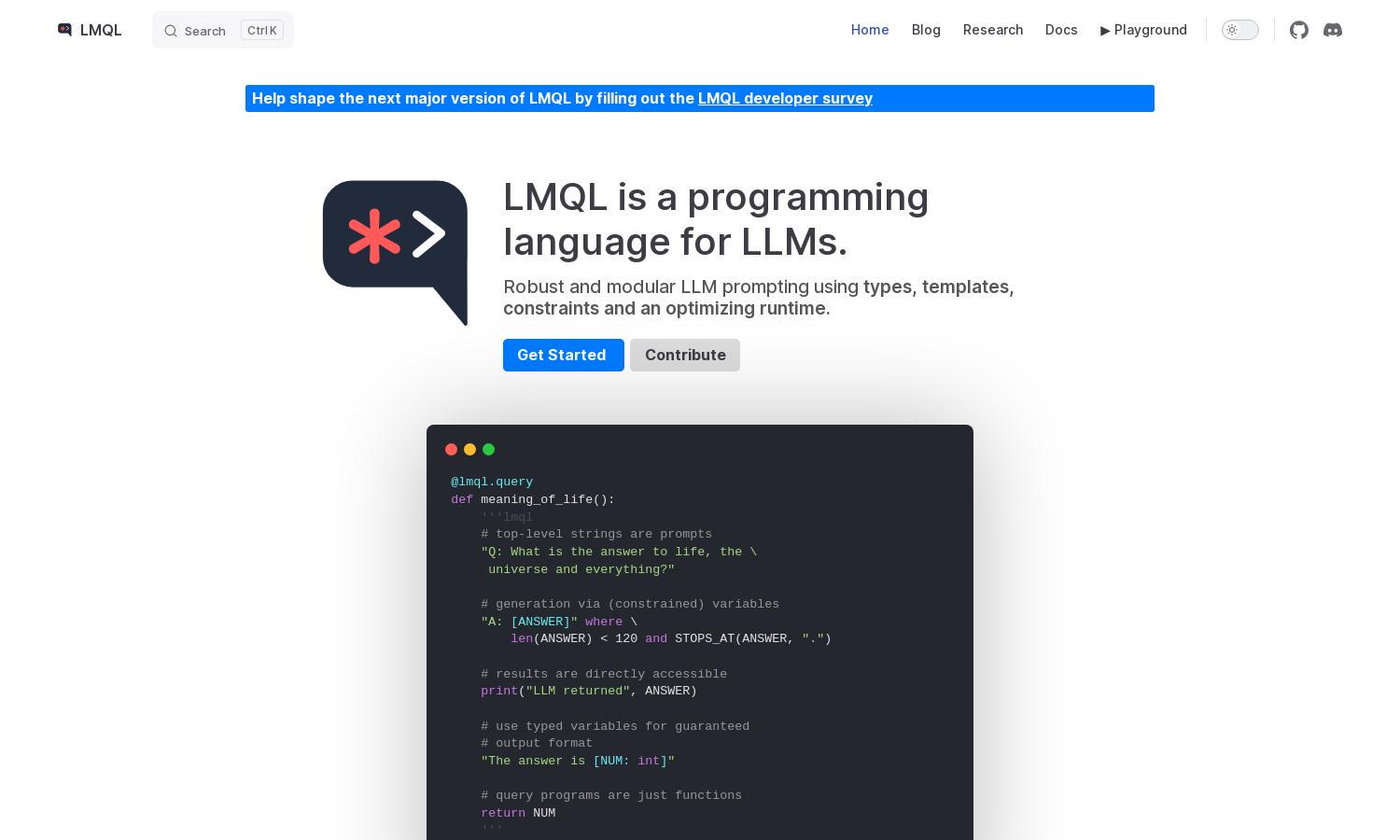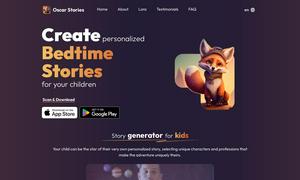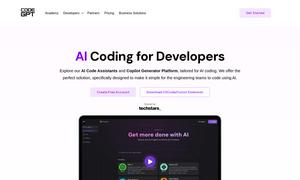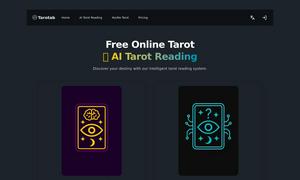LMQL

About LMQL
LMQL is an innovative programming language facilitating advanced interactions with language models (LLMs). Aimed at developers and researchers, it emphasizes modular prompting through features like nested queries and constraints. Users benefit from streamlined code, portability across different backends, and enhanced capabilities for LLM application.
LMQL offers flexible pricing plans catering to different user needs. The basic tier includes essential features, while premium plans provide advanced functionalities like nested queries and enhanced backend support. Special discounts are available for early adopters, making it a cost-effective choice for maximizing LLM interactions.
The user interface of LMQL is designed for simplicity and efficiency, allowing users to navigate seamlessly through its features. Its clean layout and intuitive design enhance the user experience, while unique tools like modular prompts and nested queries streamline LLM interaction, ensuring a productive workflow.
How LMQL works
Users interact with LMQL by first signing up and accessing the user-friendly interface. From there, users can write modular prompt functions using Python syntax, incorporating types and constraints as needed. The platform allows for code testing and execution across various LLM backends, optimizing performance while ensuring ease of use.
Key Features for LMQL
Nested Queries for Modular Prompting
LMQL's nested queries enable modularized local instructions, offering a unique way to reuse prompt components. This innovative feature allows developers to create more complex and efficient LLM applications, significantly enhancing user experience and interaction through streamlined coding practices.
Backend Portability
LMQL ensures seamless backend portability, allowing users to switch between different LLM backends effortlessly. This unique feature enhances flexibility in development, enabling users to adapt their code quickly without extensive modifications, thus optimizing their workflow and application performance.
Typed Variables for Guaranteed Output
The use of typed variables in LMQL guarantees a specific output format, adding reliability to LLM interactions. This feature enhances the development process by ensuring that functions return correctly formatted responses, addressing common issues faced by developers when working with language models.
You may also like:








